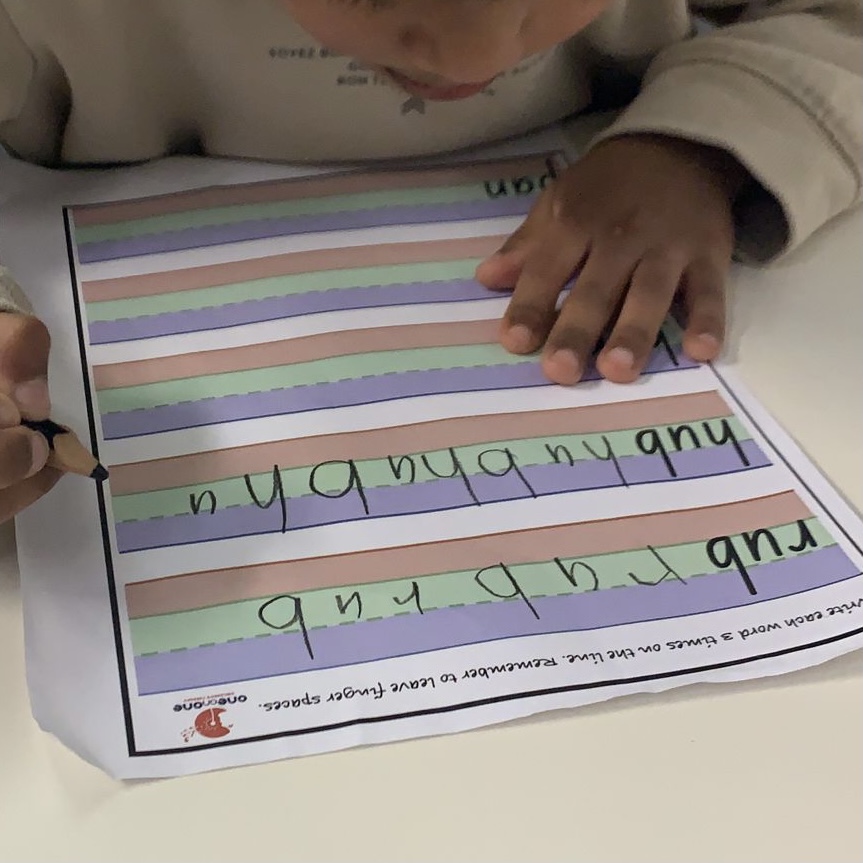
Why Is Reading So Hard for Some Children? Speech Pathology and Dyslexia Treatment in Bondi Junction and Mascot
For many children, reading is a challenge. While good readers develop strong pre-reading skills, recognise and blend sounds fluently, and connect reading to their experiences, children who struggle with reading may face difficulties in one or more of these areas. At OneOnOne Children’s Therapy, our Speech Pathologists in Bondi Junction and Mascot, members of Speech Pathology Australia, specialise in helping children overcome these challenges, including those with dyslexia.
Why Do Some Children Struggle with Reading?
Good readers typically have:
- Strong pre-reading skills
- Recognition of letter sounds
- The ability to blend sounds quickly and fluently
- A robust vocabulary
- Excellent language skills
- The ability to relate reading to personal experiences
Children who struggle with reading often have difficulties in one or more of these areas, which can make learning to read and spell much harder. These challenges can lead to children falling behind in school and, in some cases, experiencing self-esteem issues as they watch their peers complete work with greater ease.
How We Help Children with Reading Difficulties and Dyslexia
Learning to read and spell isn’t something that happens naturally—it needs to be explicitly taught. Unlike speech, which most children pick up by observing others, reading requires structured, step-by-step teaching.
At OneOnOne Children’s Therapy, our Speech Pathologists and Occupational Therapists use Sounds-Write, a highly effective, evidence-based program designed to help children with reading and spelling difficulties. Sounds-Write is widely regarded for its strong research foundation and success in teaching literacy, particularly for children with dyslexia.
Why We Use Sounds-Write for Dyslexia and Reading Difficulties
Sounds-Write is a synthetic phonics program developed in the United Kingdom. It’s designed to teach students how the sounds of spoken English are represented in written language. Here are five reasons why we use Sounds-Write in our Bondi Junction and Mascot clinics:
- Highly Structured
The program follows clear, step-by-step lessons, allowing students to build their reading and spelling skills systematically. - Cumulative Learning
Each new lesson builds on the skills the student has already mastered. This ensures that the student moves through the program with confidence, knowing they have a solid foundation. - Sequential
Sounds-Write follows a specific sequence of steps, ensuring that students learn in a logical and organised manner. - Explicit Teaching
The program provides clear, direct instructions. There is no guessing—students are taught exactly what they need to do to read and spell. Mistakes are addressed directly, and students are shown the correct way to approach reading and spelling. - Linguistic Phonics Approach
Sounds-Write teaches students the relationship between the sounds of spoken English and how they are represented in writing. This approach helps students understand the structure of words and improves both reading and spelling skills.
Sounds-Write at OneOnOne Children’s Therapy in Bondi Junction and Mascot
We are proud to offer Sounds-Write as our primary intervention for children struggling with reading and dyslexia. Our team of Speech Pathologists, who are members of Speech Pathology Australia, deliver the program in individual sessions during the school term, and we offer intensive group sessions during the school holidays.
For families unable to attend our Bondi Junction or Mascot clinics in person, we also offer Sounds-Write via Zoom, ensuring that children receive the help they need, no matter where they are.
Collaborative Support for Your Child
At OneOnOne Children’s Therapy, we believe in a holistic approach. If your child is also receiving Occupational Therapy for handwriting or postural strength, we collaborate closely with our Occupational Therapists to ensure that all aspects of your child’s development are addressed. We also maintain communication with your child’s teacher to align our goals and provide comprehensive support.
We’re Here to Support You
At OneOnOne Children’s Therapy, we believe every child deserves the opportunity to grow and thrive. Our Bondi Junction and Mascot clinics are not just spaces for therapy—they are places where children can discover their strengths, overcome challenges, and reach their full potential. With innovative therapy techniques and a supportive environment, we offer a holistic approach to paediatric therapy and early intervention.
Contact Us for Dyslexia Treatment and Speech Pathology in Bondi Junction and Mascot
If you’re concerned about your child’s reading development or want to learn more about how Sounds-Write can help with dyslexia, OneOnOne Children’s Therapy is here to support you.
Call our Bondi Junction and Mascot clinics at (02) 8065 7837 or email us. You can also book a free 30-minute phone consultation to discuss how we can support your child’s unique journey.
